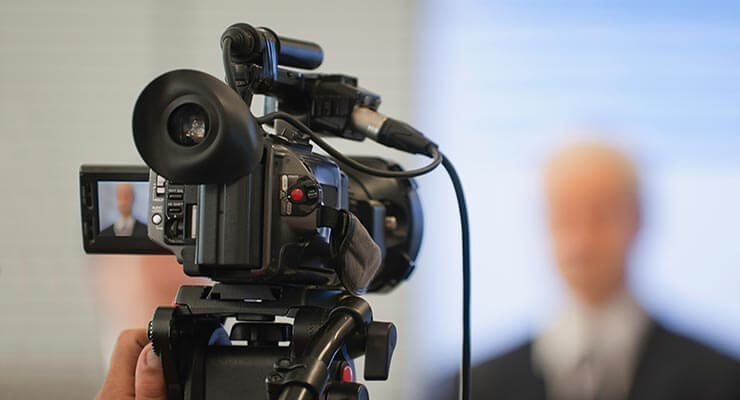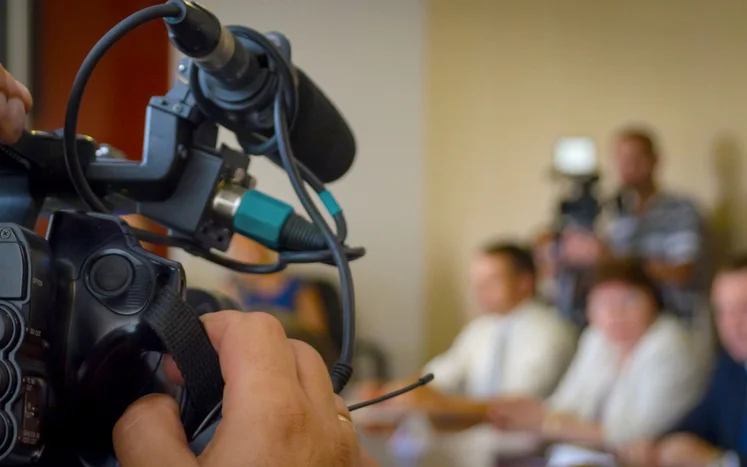Cost-Effective Legal Videography Solutions.
Cost-Effective Legal Videography Solutions.
Blog Article
The Function of Legal Videography in Depositions and Tests
Lawful videography has emerged as a necessary tool in both depositions and trials, providing a complex technique to documenting witness testimonies. By recording not just the talked word but additionally the nuances of non-verbal communication, this tool boosts the integrity of statements and maintains essential proof for future proceedings (legal videography). As lawyers increasingly identify its value, it motivates a much deeper evaluation of just how these visual documents can influence juror perceptions and test outcomes. What effects might these developments hold for the future of lawful method?

Relevance of Legal Videography
Legal videography plays a pivotal function in the documents and discussion of depositions and trials. This specific area combines technical abilities with lawful knowledge to create a trustworthy record of proceedings that can substantially affect case outcomes. The appearance of legal videography enhances the understanding of witness testament, permitting jurors and judges to observe not only the spoken words however likewise the demeanor, feelings, and body language of the witnesses.
On top of that, lawful videography supplies an unbiased account of events, reducing the potential for false impression that can accompany written records alone. This aesthetic paperwork serves as an important tool during test discussions, assisting in a clearer and more influential story for both plaintiffs and defendants. Furthermore, the capability to replay video segments throughout court process allows legal groups to highlight bottom lines, reinforcing their arguments properly.
The importance of lawful videography extends beyond the court room; it also plays an essential duty in maintaining proof for future recommendation, whether for appeals or further lawful action. Its assimilation into the lawful process is essential for making sure a fair and precise depiction of the facts, eventually adding to the pursuit of justice.

Refine of Legal Videography
While capturing the nuances of depositions and trials, the procedure of lawful videography entails several vital actions that guarantee high-grade, accurate recordings. A specialist lawful videographer prepares by reviewing the case materials and understanding the particular demands of the deposition or trial. This prep work consists of acquainting themselves with the individuals and the context, which helps in catching significant information.
On the day of the recording, the videographer establishes the essential tools, which commonly includes high-def electronic cameras, microphones, and correct lights. Making certain optimum angles and audio high quality is vital, as it directly impacts the effectiveness of the recording. The videographer connects with lawyers and individuals to establish protocols, ensuring that every person recognizes the recording procedure.
Throughout the deposition or trial, the videographer diligently records the process, paying very close attention to both verbal and non-verbal signs. This consists of capturing the attitude and reactions of witnesses and attorneys. After the session wraps up, the videographer may modify the footage for clearness and conformity with legal standards, producing a last product that properly shows the procedures for future reference and usage in legal contexts.
Advantages in Depositions
The consolidation of videography in depositions provides countless advantages that enhance the overall procedure of gathering proof. One primary advantage is the ability to record witness statements with visual and auditory integrity, offering an extra precise depiction of the witness's attitude, tone, their website and body language. This multidimensional strategy allows lawyers and courts to evaluate trustworthiness more successfully than traditional written records alone.
Additionally, videographed depositions serve as an effective tool for preserving statement. Should a witness ended up being inaccessible for trial, their taped deposition can be played in court, ensuring that their evidence continues to be accessible and pertinent. This aspect dramatically reduces the danger of shedding crucial info that might influence case results.

Last but not least, videography enhances the total professionalism of the deposition process, instilling confidence in customers regarding the thoroughness of their lawful depiction (legal videography). By leveraging modern technology, look these up attorneys can substantially enhance the efficiency of depositions
Effect on Trials
In many tests, the assimilation of videography can substantially influence the presentation of proof and the jury's perception. Lawful videography records witness statements and vital evidence in a vibrant style, allowing jurors to involve with the product on multiple degrees. This visual part boosts the storytelling facet of a test, offering context and psychological vibration that conventional text-based proof may do not have.
In addition, video recordings can offer as effective tools for impeachment throughout cross-examination. When disparities develop between a witness's previous statements and their court room statement, video clip evidence provides an unbiased reference that can persuade jurors' opinions. This immediacy and quality can reinforce the credibility of an event's narrative while all at once weakening opposing debates.

Future Trends in Legal Videography
As we look towards the future of lawful videography, a number of arising fads assure to improve its duty within the court room. One substantial pattern is the combination of man-made knowledge (AI) in video analysis and editing. AI can streamline the process of recognizing vital minutes in taped depositions, enabling attorneys to quickly access relevant web content, consequently improving efficiency in instance prep work.
Furthermore, the rise find here of virtual fact (VR) and enhanced reality (AR) modern technologies is anticipated to transform how jurors experience proof. legal videography. By immersing jurors in a simulated setting, these innovations can offer a more extensive understanding of complicated scenarios, bring about even more informed considerations
Additionally, the enhancing need for remote depositions, sped up by the COVID-19 pandemic, will likely continue. Lawful videographers will require to adapt to brand-new software application and systems to make certain top notch recordings in virtual setups.
Lastly, the expanding emphasis on information safety and security will certainly require more stringent procedures for saving and sharing video proof. As the legal landscape advances, legal videographers have to stay abreast of these patterns to maintain their significance and effectiveness in the judicial process.
Verdict
In summary, legal videography offers a crucial function in the judicial procedure, improving the stability of depositions and trials. As technology continues to evolve, legal videography is poised to more change its duty within the lawful landscape.
Report this page